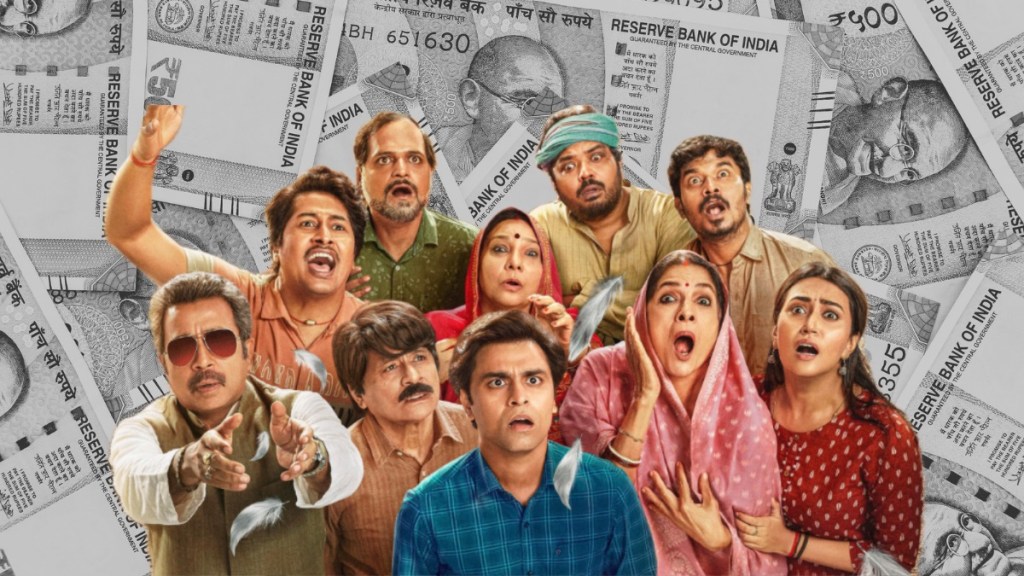If you thought Panchayat was just a show about rural politics and quiet village life, think again. Season 4 brings you gripping power struggles and character arcs, but an unexpectedly rich box of financial lessons.
As always, this series turns to simplicity, and within that lies a world of money management tips that most personal finance blogs could only hope to explain this well.
From Sachiv Ji’s quiet calculations to Brij Bhushan’s short-sighted risks, Season 4 reflects the way many of us navigate money in real life, sometimes wisely, sometimes impulsively. Decisions that always come with consequences.
We’ve broken down some key moments to bring financial lessons you didn’t know you were learning.
Ready?
1. Sachiv Ji’s Lean and Clean Budgeting
Sachiv Ji (Abhishek Tripathi) has come a long way from being an unwilling secretary to a grounded and thoughtful leader. Yet, one thing has stayed constant -his prudent life.
From cooking in his tiny room, managing panchayat expenses, to avoiding needless indulgence, Sachiv Ji shows you the power of mindful spending.
#1 Desi Lesson:
- A simple life cuts financial worry. Know your monthly expenses, make a budget, and stick to it. The fewer the frills, the clearer the priorities.
- Track spending like a panchayat audit. Visibility is control.
In a world of EMIs and subscription traps, being a modern-day Sachiv Ji isn’t backward, it’s financially evolved.
2. Don’t Be Brij Bhushan: Emotions = Bad Investing
Pradhan Pati Brij Bhushan Dubey’s decision-making this season was all heart, little head. From handling the opposition to attempting to outwit the District Magistrate, his moves were emotionally charged and reactionary.
#2 Desi Lesson:
- Making investments or purchases based on ego, fear, or emotion rarely ends well.
- Be rational, not reactive. Markets don’t care about your pride.
Think of him as the person who panic-buys stocks during a market high and sells during a dip. Don’t be that person.
3. Value Investing, Phulera Style: Community Building
One of the underlying plotlines this season revolved around infrastructure and long-term planning, especially around the new community center. Some villagers resisted the idea because of momentary distress, but others saw its future value.
#3 Desi Lesson:
- Spending now for value later can be the smarter choice. It’s investing in the future, not indulging.
- Understand the difference between price and worth. Not all spending is bad if the ROI is long-term, whether it is investing in mutual funds or meaningful assets.
This is classic long-term investing. And like the villagers, we often resist late fulfilment, but that’s where real wealth is built.
4. Risk Includes Cost: The Politics of Leverage
Binod, the cunning opposition leader, plays a risky game trying to take over the current panchayat. His political bet doesn’t pay off and creates cracks, hurting the whole village.
#4 Desi Lesson:
- Taking risks without knowing the issue is like investing in a stock because your cousin’s uncle’s friend said it would triple in the next week. Research thoroughly before you invest.
- Diversify your risks. Don’t bet everything on a single result.
Planned risk is necessary for growth, but blind risk can burn your portfolio and your relationships.
5. Invest in Relationships: Your Financial Network Matters
One of the show’s strongest emotional bonds is the friendship between Abhishek, Vikas, Prahlad, and even Manju Devi. These bonds are inspiring and just the support system you need.
#5 Desi Lesson:
- In life, your network = your net worth. Work together, ask, and learn from others’ knowledge.
- Whether it’s selecting stocks, insurance, property, or bonds, discussing with a knowledgeable circle helps.
Your SIPs and savings don’t need sharing to grow, but wisdom grows when you share.
6. Focus on Your Goals
Sachiv Ji may be knee-deep in village problems, but he hasn’t lost sight of his UPSC goals. He makes the effort to study with discipline, manage time wisely, and doesn’t let himself be sidetracked by short-term wins in the Phulera.
#6 Desi Lesson:
- Long-term goal is the way to go. Whether you want to retire at 45, buy a home, or study abroad, work back to figure out your financial strategy.
- Postpone fun now for freedom later. The ultimate goal of finance is financial independence.
Discipline always beats distractions, especially when it comes to money.
Phulera is Just a Tiny Village, But the Insight Is Great
This season, Panchayat captured more than just political plots. It was a masterclass in thoughtful decisions, human psyche, and yes, personal money.
The village may not have stock exchanges or fintech apps, but it shows you real-world financial issues better than case studies at business schools.
So next time you watch Sachiv Ji fix a water tank or outwit political plotters, know that you’re also getting a lesson in money management.
And maybe, just maybe, we all need a bit of Phulera in our financial lives.
Note: The purpose of this article is only to share interesting charts, data points and thought-provoking opinions. It is NOT a recommendation. If you wish to consider an investment, you are strongly advised to consult your advisor. This article is strictly for educative purposes only.
Archana Chettiar is a writer with over a decade of experience in storytelling, and, in particular, investor education. In a previous assignment, at Equentis Wealth Advisory, she led innovation and communication initiatives. Here she focused her writing on stocks and other investment avenues that could empower her readers to make potentially better investment decisions.
The website managers, its employee(s), and contributors/writers/authors of articles have or may have an outstanding buy or sell position or holding in the securities, options on securities or other related investments of issuers and/or companies discussed therein. The content of the articles and the interpretation of data are solely the personal views of the contributors/ writers/authors. Investors must make their own investment decisions based on their specific objectives, resources and only after consulting such independent advisors as may be necessary.

